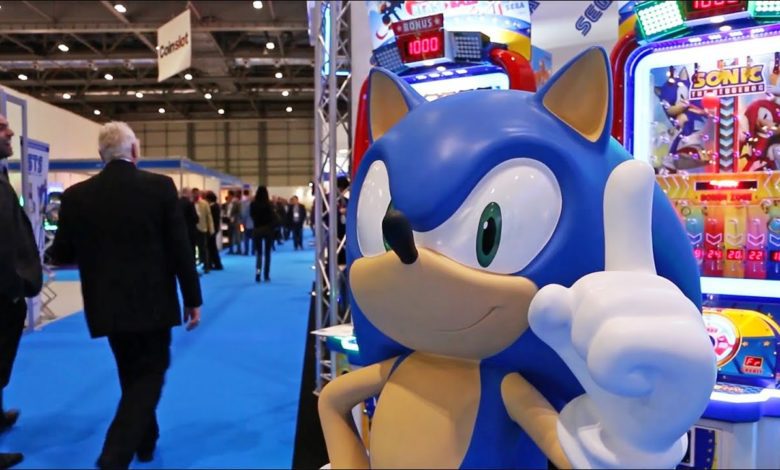
Thanks a lot, WaterMelon Games, you freakin’ butt holes! Here I was, all primed up to make a joke about how Pier Solar HD sucks because it doesn’t have any watermelons in the game, and what do you do? You put watermelons all over it! There’s even a damn watermelon-growing mini-game! Now I have no joke to lead off with, and it’s all your fault, WaterMelon Games, you turd cauldrons!
&%$#%&!!!

It’s cool. I’m over it. Anyway, this review is going to be a bit unique, so let me explain. You know how other douchey mainstream gaming sites will break up reviews of prominent releases over several installments as click-bait? “Come check out Day One of our Destiny Review, then come back for Day Two, Three…” Barf, right? These are exclusively done for big, AAA games, which, I’m sorry, kinda establishes these websites as cogs in the all-too-dominant AAA hype machines.
Well, we’re a humble little totally legit juggernaut of a site here at SEGA Nerds, so we’re throwing our weight around a bit to give Pier Solar HD, a smaller indie game, the same extra exposure as those thankless, AAA titles.

What? Are you suggesting that I’m writing the review this way because I’m a regular person and it takes me a little longer to complete longer games like RPGs? It’s true- unless someone starts paying me some kind of livable sum to write this stuff, I’ve got to take things a little bit slower (by “someone” I mean our esteemed editor, Chris, and by “livable sum” I mean $80K plus benefits per annum).
Honestly though, I think this approach makes a lot of sense. How many of you out there play RPGs the same way, that is, over a long period of time? How many of you lose interest in them before the end? By structuring my review of Pier Solar HD this way, I’m trying to replicate that experience and better serve this type of gamer.
So there it is- part experiment, part excuse, and part biting my thumb at the mainstream hype-mongers. Now let’s do this!
Without further adieu…
Pier Solar started as an independently-published Genesis/Mega Drive Japanese RPG-style (yet western-developed) game released in 2010. I haven’t had the chance to play that original release, so this is my first trip through the game. The quest begins when Hoston, Pier Solar‘s main protagonist (so far), heads off in search of a rare cure for his ailing father. Hoston is quickly joined by two friends, Alina and Edessot, and needless to say, the plot expands quite significantly from there. Those are the only story details I feel comfortable discussing. Spoilers piss me off, even if the game is old.

So far, it’s refreshing to play a JRPG that clearly didn’t require linguistic gymnastics to translate and localize for English-speaking audiences. While some JRPGs of the early 90s do a better job than others (the SEGA CD Lunar games come to mind), very often plot points were muddy, motivations were forced, and the bane of “Engrish” reared its ugly head all too often. Not only does the story make perfect sense, but the dialogue is pithy, well-written and genuinely funny at times. The conversations between the teenage trio of protagonists are natural enough that I can easily imagine having similar exchanges with my own friends, back when I was an insufferable, know-it-all teenager.
Watermelons as far as the eye can see
The world itself is easy to navigate so far. There is an overworld map which allows you to jump immediately to the adjacent areas (similar to the map in Ys III: Wanderers from Ys, if that helps), so there is no need to painstakingly traverse an empty, open field at the risk of getting lost. This quick and easy means of travel may delight some players who are interested in moving the story forward, but if you prefer the freedom to explore the world in its entirety, you might find Pier Solar HD’s quick-travel system a bit limiting.

Other than the monster-infested wilderness areas, there are of course towns scattered across the map where you can rest up at an inn, buy and sell supplies, interact with NPCs, and save your game. Let me help you out- to save your game, you have to manually do so on a small gold “save point” disc present only in certain areas. These little discs are easy to miss, so you can thank me for pointing them out to you as the game doesn’t call your attention to them in any way. You can also turn on an option to auto-save your progress, but it only works when you move from one major area to another.
Let’s do battle!

The battles should feel pretty familiar to anyone with experience playing JRPGs in the 16-bit era. This is still designed to be an old school JRPG, so battles are still completely random, but they are limited strictly to the hazardous locations on the map and are not terribly frequent. They are turn-based, complete with standard attacks, spells, use item, and spells/special attack turn options.
What makes Pier Solar’s battle stand out, however, is the inclusion of two other options: gather and defend. Gather allows a player to build up energy in order to produce more powerful attacks in subsequent turns. The biggest game-changer here, though, is that you can send energy “gathered” to another member of your party, so if there is a character that isn’t really too helpful in a particular fight, you can select gather a few times and send it to your most effective character, and let the carnage loose!… or cast a more powerful healing spell if you’re sucking.

Defend doesn’t sound like much of an innovation, and truth be told, with my limited experience playing RPGs, I expect that other games might have done something similar. Whatever the case, defend is a pretty cool option. It’s more that just “block” or “guard” which I know I’ve seen before. When you defend, you not only brace yourself for attack, but you also have the chance to launch a counter-attack. Sometimes this is the only way for some characters to deal damage against certain enemies (i.e. a character wielding a sword can’t directly attack a flying enemy), and you can also opt to defend another member of your party, which is awesome. Need to absorb a hit or two for an ailing teammate? Defend them! Want to patronizingly gallantly protect the female members of your party from attack? Defend them!
So pretty

The aesthetics of Pier Solar really shine through. The game is quite striking so far, enough so that even my wife said “Wow, this game looks pretty,” and she doesn’t typically remark on the games I play. There are several options to choose from in tailoring your Pier Solar experience. You can select from one of three visual filters. The first is HD mode, which combines pixel art sprites with lush, highly-detailed environments. This is both the default setting and the setting I spent most of I my own time playing the game. The second filter is HD+, which rounds out the sharp edges of the onscreen characters. I personally felt that choosing this option washed out the characters, making them less distinct from the backgrounds, but I’m sure there are some gamers out there who would prefer this option. The third is the original 16-bit filter, which recreates the look of the original SEGA Genesis version, pixel for pixel. While it isn’t my own fall back filter, it is remarkable to see how great the game looks in its original form, and retro hounds or purists wanting to experience the game in its original form will find it very satisfying (and cheaper than tracking down an original Genesis cartridge).
So in short, the game looks great, and I haven’t even mentioned how staggeringly beautiful the still images are in the story cinematics. Sure, they don’t animate, but they are remarkable works of art in their own right.

The crafty folks at WaterMelon didn’t stop there, though. You also have the option to change the audio track from the default upgraded audio to the original Genesis FM chip-tunes. Either way, the music is very evocative of the mood and phenomenally composed. I’m extremely jealous of the folks who received the free soundtrack CDs with the first runs of the original game. I’ve intensionally allowed the title screen music to repeat more than once; it really is a very pleasant tune.
You can therefore mix and match all of these options to suit your own tastes. Want to play the original pixel art game with a CD-quality soundtrack? Or maybe you like the smooth filter of the HD+ view option, but you’re a sucker for chiptunes? You can set it up however you want, which is pretty darn awesome.
To be continued…
That may be where I leave this “first impression” part of my review. At this point, I’m about five or six hours into Pier Solar, and I will say that I am very impressed so far. I’m going to hold off on assigning a final score until I’m done with the entire game, though so I’ll be back to lay out more of my thoughts as I progress. Time to get playing before this becomes a recurring, year-long feature!

PROS:
+ Clever additions to a tried-and-true battle formula
+ Tight, smart storytelling
+ Looks and sounds great
+ Several options for customizing the aesthetics
CONS:
– Process for saving your game initially unclear
– Will the old-school design remain engaging for modern players?
– No missing watermelons joke for my review… jerks

